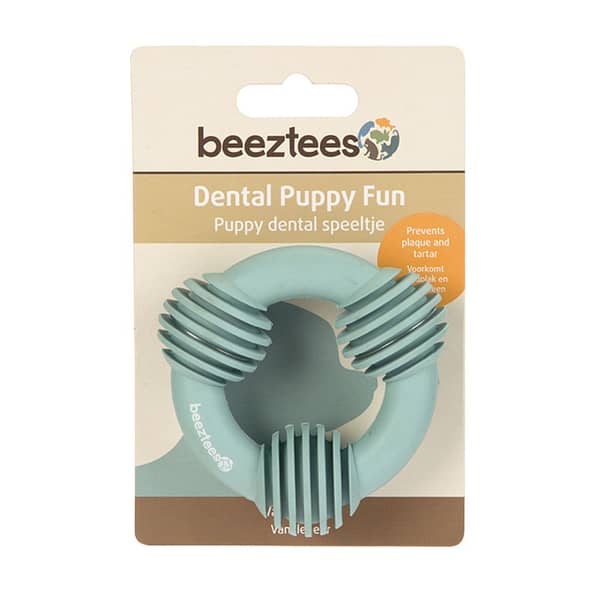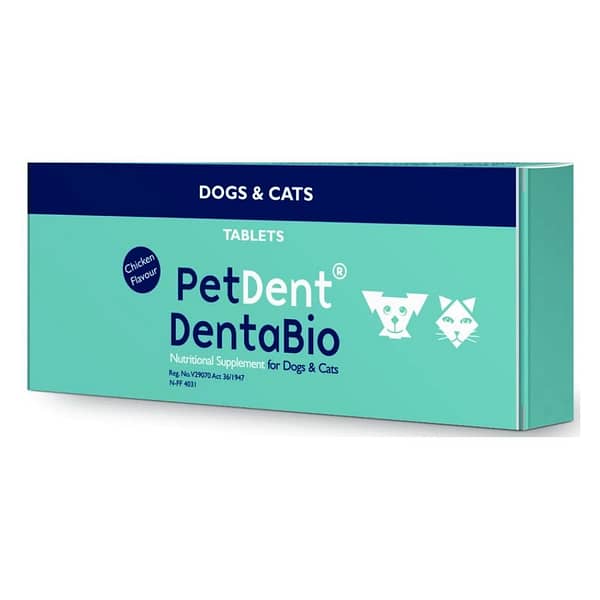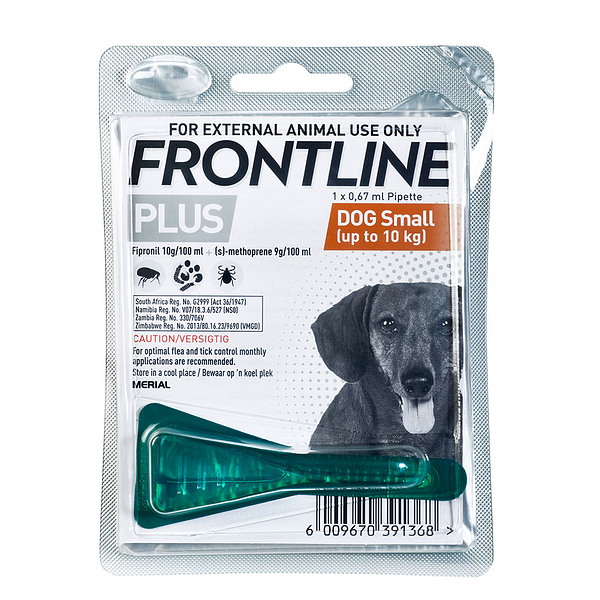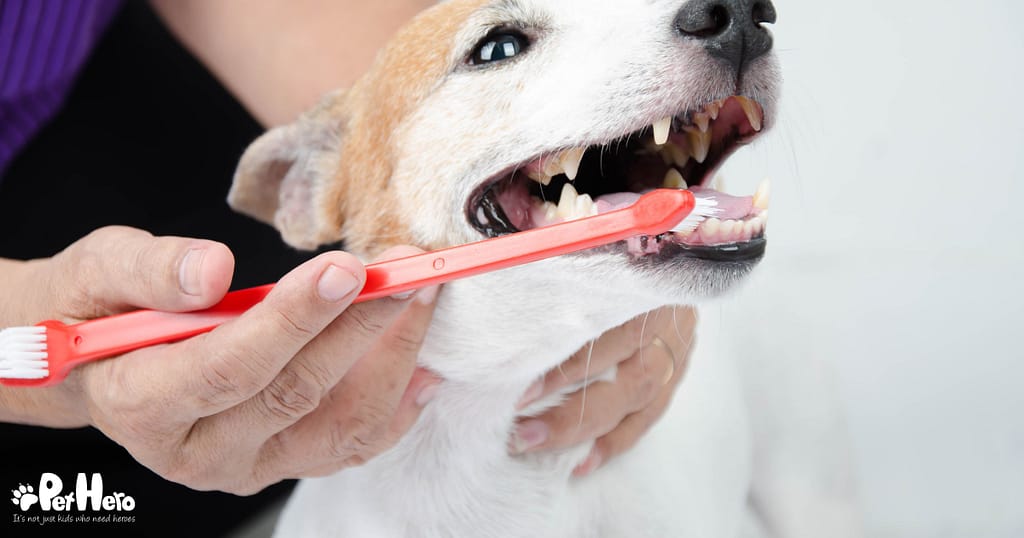All dog owners want happy, well-adjusted dogs who can live long and healthy lives. We love veterinarians, but we’d like to see them as seldom as pawsible! As with any living creature, there’s always a risk of health issues in dogs – whether it’s built into their DNA, triggered by the environment, a progressive deterioration with age, or a problem brought on by an acute illness or injury. This article explores which common health problems are most often brought to the veterinarian’s attention.
We also look at which diseases and illnesses affect small and large breed dogs, and why the breed size distinction is made.
Most common dog health issues
The most common dog health issues occur across all dog breeds and dog sizes. Veterinarians regularly diagnose the following health problems in dogs:
Obesity in dogs
Some dog owners get a chuckle and an “Awww!” when they see their round, pudgy dog who waddles around begging for treats, doesn’t really want to be exercised, and appears to be the pawfect couch potato. Fat little doggies may seem endearing, but obesity puts incredible strain on a dog’s body.
Obesity not only shortens a dog’s life by up to 2.5 years, but the extra weight puts additional pressure on their joints (which can speed up the progression of degenerative joint disease) and can increase the amount of pain they experience, just by moving around. Flat-faced (brachycephalic) breeds like French bulldogs, pugs, English bulldogs, Pekingese, shih tzus, Boston terriers and boxers already have a difficult time breathing when they are hot or over-exerted. Add obesity into the mix and it increases their inability to breathe properly. That can’t be comfortable!
Critically, the heart also struggles when a dog is overweight, so if there are existing heart issues like mitral valve disease or cardiomyopathy, these are only exacerbated and will lead to symptoms of heart problems showing up faster.
Not only do dogs experience physical stimulation when they are exercised, but physical exertion is also good for their mental and emotional wellbeing. A fat dog will experience lethargy and will be easily fatigued by exercise, but they may also be depressed and emotionally unwell. This is not the lowered quality of life that any dog owner would wish upon their precious pooch, so it’s impawtant to address it immediately. Your vet will help to find the cause of your dog’s weight gain and to correct any underlying problems – such as putting your pup on a diet.
What causes weight gain in dogs? Typically, obesity in dogs is caused by too much food and not enough exercise. There may also be other illnesses at play, such as hypothyroidism, Cushing’s syndrome or fluid retention from heart disease. However, veterinarians find that more often than not, dogs are being fed table scraps (over and above their recommended daily caloric allowance), being shown love in the form of a treat instead of exercise and training, or owners not being aware of how much food their pup should be getting and they are simply being overfed.
If your dog is looking a little more roundy than houndy, please schedule a visit to the veterinarian for advice on how to restore their normal weight and to prioritise their health and wellbeing.
Read our in-depth article on pet obesity and help your pet to lose weight.
Dental disease in dogs
Gingivitis and periodontal disease are so common in dogs that by their second birthday, approximately 80% of dogs will experience dental disease to some degree. Gingivitis is gum inflammation caused by dental tartar, which hardens on the dog’s teeth and irritates the gums. One of the first symptoms of gingivitis is gums that bleed easily, so if your dog has inflammation of the gums, you might see traces of blood on their chew toys.
Gingivitis can develop into periodontal disease when oral bacteria and food debris are trapped in periodontal pockets below the gumline. These prime the gums for infection, can result in tissue damage around the teeth, bone loss and loose teeth. Bacteria from oral infection can enter the bloodstream and spread to other organs in the dog’s body. This can have far-reaching and devastating effects on the dog’s heart, liver and kidneys – even shortening their lives.
How to avoid dental disease in dogs: It’s critically important to establish a daily toothbrushing routine with your dog. This helps to remove oral bacteria from your dog’s mouth, giving it no time to find purchase and develop into plaque and then tartar sticking to your dog’s teeth and causing problems. Most dogs won’t enjoy toothbrushing at first, but with positive reinforcement (with a dental treat and lots of praise) and persistence, you can ensure that brushing and rinsing simply become part of your dog’s regular day. Starting this routine from puppyhood, when your puppy’s permanent teeth have come in, is your best bet for your dog’s good oral health.
Visit the veterinarian for an annual dental check-up to ensure your pup’s pearly whites stay healthy and strong throughout their life.
Ear infections in dogs
Ear infections are another of the most common reasons for veterinary visits by dog owners. There are many causes of ear infections, and the infections can have one or more locations:
- in the ear canal (otitis externa)
- in the middle ear (otitis media)
- in the inner ear (otitis interna)
Infection symptoms include inflammation, redness and heat, ear discharge, and in some cases even a pungent odour emanating from the dog’s ear/s. Behavioural symptoms will include head shaking, scratching or rubbing the ears, and even crying when their ears or head are touched. Acute ear infection can be caused by skin or environmental allergies, something lodged in the ear, or bacterial or yeast growth when a dog’s ears aren’t dried properly after swimming. Chronic ear infections are perpetuated by an overgrowth of bacteria and yeasts, and can even be caused by the shape of the dog’s ear canals, which predisposes them to ongoing infections.
When the otitis externa infection migrates past the eardrum into the middle ear, it’s called otitis media, which is characterised by the same symptoms. If the infection were to reach the inner ear (otitis interna), it can affect the dog’s balance and hearing ability. Inflammation in the inner ear can be very painful and it also affects the dog’s facial nerves, resulting in a constricted pupil, and paralysis of the face on the affected side. The dog will also have a more pronounced head tilt.
Ear infections can have severe long-term complications, so it’s important to get them treated as soon as possible. The veterinarian will examine the ear canal and if there is an ear infection, the dog will need a course of antibiotics as well as anti-inflammatories to treat the pain and inflammation. Regular ear-cleaning may be recommended, which can easily be done at home. For chronic infections, especially in the middle- and inner ear, the vet may need to surgically drain the discharge. For chronic inner ear infections with a ruptured eardrum, the dog may have neurological side-effects such as a permanent head-tilt, facial paralysis, co-ordination problems, etc. This emphasises the importance of having any canine ear infections seen to as soon as possible.
Which dog breeds are prone to ear infections?
- Labradors – Water-loving Labbies are susceptible to yeast and bacterial overgrowth if their ears aren’t dried properly. They are also prone to other skin and environmental allergies, which makes their ears extra sensitive.
- Cocker spaniels and shih tzus – Long, furry, floppy ears as well as the allergy sensitivity of both of these breeds make them especially risky for ear infections.
- Bloodhounds and basset hounds – Both of these long-eared breeds are known for their droopy faces, skin folds and pendulous ears. This makes them prime candidates for ear infections, as their ears are notorious for trapping moisture and harbouring bacteria.
- English bulldogs and shar-peis – These breeds are known and loved for their ample skin folds, which can unfortunately harbour bacteria and yeast if not properly taken care of. There is also a breed disposition for narrow ear canals, which puts them at risk of ear infections, as any debris cannot exit the canal as easily as with a wider canal.
Skin issues in dogs
Many dogs will suffer with skin allergies, infections and other issues at some point in their lives. We’ve covered these issues extensively in other articles on Pet Hero:
Symptoms of and treatment for your pet’s allergies
Common skin allergies in dogs
Parasites on dogs
Flea allergy dermatitis, tick bite fever, biliary and worms are just some of the common diseases caused by the parasites that love our furry friends almost as much as we do. Furtunately, these diseases are completely preventable – all you have to do is keep your pets on a regular schedule of spot-on or chewable medication, or fit them with a tick and flea collar or an ultrasonic collar.
Vomiting and diarrhoea in dogs
One of the most common reasons for a veterinary visit is gastrointestinal (GI) upset. Vomiting and diarrhoea in dogs can be caused by:
- food allergies
- dietary change
- viral or bacterial infection
- parasites
- stress
- poisoning (chemical or food)
- indiscriminate eating (out of the rubbish bin or compost heap)
- pancreatitis (or other metabolic disorders)
- ulcers
While some vomiting and/or diarrhoea will simply resolve itself (since it’s your dog’s natural way of eliminating toxins and bacteria from the body), other bouts of GI upset can quickly become dangerous, especially if there’s an obstruction or if your dog dehydrates himself with repeated vomiting and watery diarrhoea.
Always contact the vet immediately if your dog’s GI upset is uncharacteristic, or especially if there is blood in the vomit or stool.
While many conditions such as skin allergies, arthritis and cancer are ultimately unavoidable, a lot can be done to slow their progression (such as with arthritis), catch them early with screening (such as with cancers) and to minimise their effects (such as reducing skin allergen triggers like pollen and certain types of proteins).
Many dog health issues like obesity, dental disease, parasites, and vomiting and diarrhoea are entirely avoidable. All they require is the commitment to conscious and responsible dog ownership. Proper nutrition, regular vet visits, parasite control (tick & flea preventative medication as well as deworming) and setting boundaries for your dog make up the foundation of your best furry friend’s health and wellbeing.
There are some dog health problems, however, that are more prevalent in small breed dogs or large breed dogs specifically because of their size. Let’s take a look at the size-specific health problems in different size breeds.
Common small dog breed health problems
Small dog breeds are those that weigh 6 kg – 11 kg (those under six kilograms are ‘toy’ or ‘miniature’ breeds). Some small dog health problems are the result of small dogs living longer than larger breeds, while other health problems are the result of the dogs’ small stature. These may include:
- Patellar luxation – slipped knee
- Collapsed trachea – distorting windpipe
- Hypoglycaemia – low blood sugar
- Intervertebral disc disease – ruptured, shifted spinal cushioning
- Mitral valve disease – heart problems
- Dystocia – inability to deliver puppies from the uterus
- Dental disease – gingivitis and periodontitis
For a longer explanation of the causes and implications of these small dog breed health issues, read our article.
Common large breed dog health problems
Large and giant breed dogs are those that weigh 26 kg and above. The English mastiff is an absolute giant who can reach up to 100 kg in weight. Many large breed health issues are caused by large dogs’ heavier bodyweight, as well as the fact that they live shorter lives than medium and small breed dogs. This means that they age faster – the wear-and-tear becomes more apparent sooner on their large bodies. The health problems most often experienced by larger dog breeds include:
- Osteoarthritis (or degenerative joint disease (DJD))
- Hip and elbow dysplasia
- Hypothyroidism
- Aortic stenosis
- Dilated cardiomyopathy
- Gastric torsion
For a more detailed description of the causes and mitigation of these large dog breed health issues, read our article.
Conclusion
If you have any concerns about any health issues your furry friend may be experiencing, make an appointment with your veterinarian and ask them to do a check-up. If a health problem can be detected early – before the symptoms affect your dog’s quality of life – your dog’s prognosis will look a lot better than waiting for a problem to become an emergency.

















